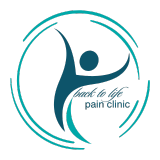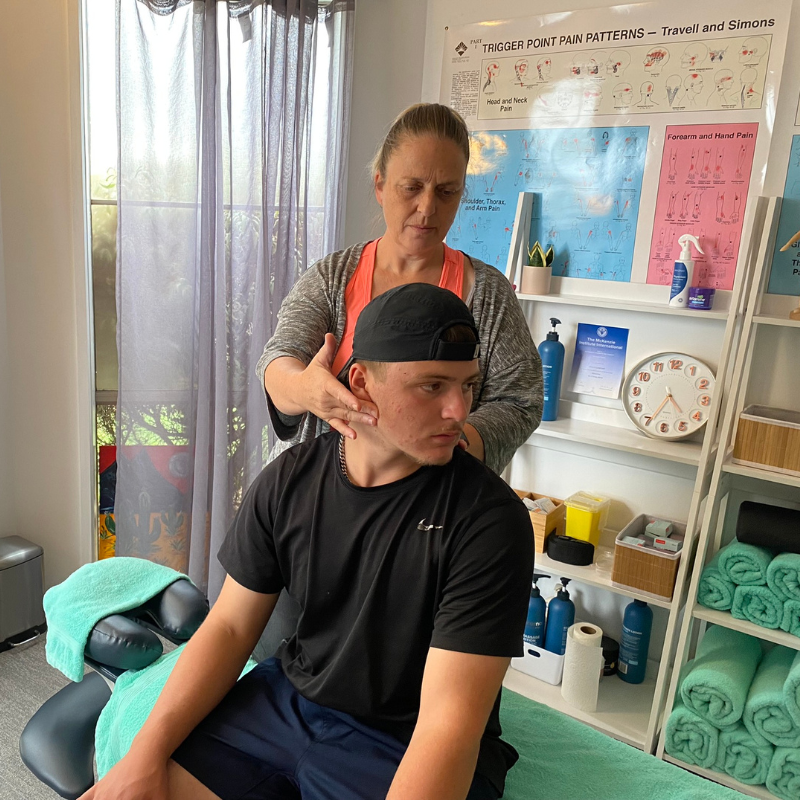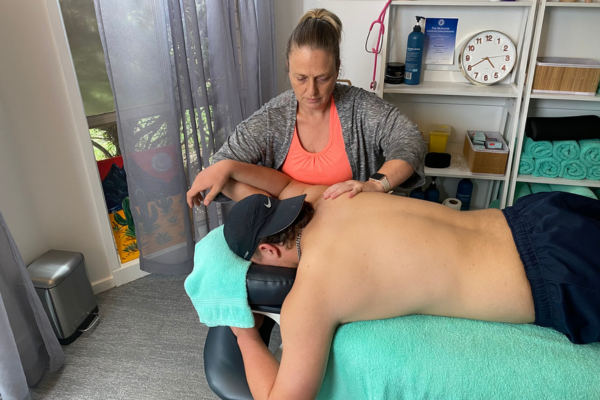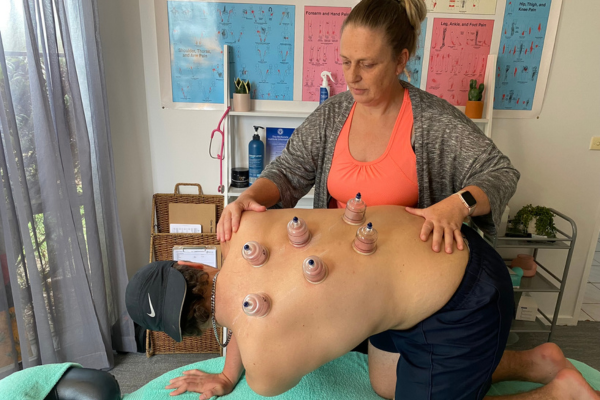Are you struggling with chronic pain or overwhelm?
If you’re dealing with chronic back pain, neck pain, headaches, or conditions like osteoarthritis, fibromyalgia, chronic fatigue, or multiple sclerosis, you know how deeply it impacts every part of your life. You’re not just seeking temporary relief – you want real, lasting change.
How We Can Help
At Back To Life Myotherapy, we understand that pain goes beyond the physical. It brings stress, anxiety, and the frustration of missing out on the things you love. That’s why our approach is more than symptom relief; it’s about uncovering the root causes of your pain and addressing them directly.
Our Holistic Approach to Your Health
We see you as a whole person, not just a set of symptoms. Together, we’ll create a tailored plan to help you:
- Begin Healing: Activate your body’s natural ability to heal.
- Move Freely: Rediscover the freedom of movement without pain holding you back.
- Regain Strength: Build strength to tackle everyday tasks with confidence and ease.
- Gain Mental Clarity: Lift the fog of pain and fatigue to live with renewed focus and energy.
You deserve to feel amazing, and we’re here to help you get there. Let’s start the journey to moving and feeling better than you have in years. Together, we’ll make lasting change happen!
Experience Relief and Rejuvenation with Your Personalised Myotherapy Session
When you come in for your Myotherapy session, here’s what you can expect:
- Personal Consultation: We’ll start by discussing your specific conditions and concerns. This is all about understanding your unique needs.
- Comprehensive Assessments: Through postural analysis, movement, muscle strength, and range of motion tests, we’ll pinpoint the root causes of your discomfort.
- Targeted Treatment: Based on our assessments, you’ll receive treatment tailored to address your specific issues.
- Exercises for Improvement: We’ll guide you through postural correction or strengthening exercises that you can do to help improve your condition.
- Progress Check: We’ll reassess your condition during the session to ensure the treatment is effective and adjust as needed.
- Home Care Guidance: You’ll leave with practical advice and simple exercises you can do at home to continue your progress.
Conditions We Commonly Address:
From general stiffness, back pain, neck pain, and headaches to more specific issues like nerve pain, joint problems, sciatica, carpal tunnel syndrome, and fibromyalgia, we’re here to help relieve your pain and improve your mobility.
Your journey to better health and well-being is our top priority. Let’s work together to help you move freely and feel better than you have in years.
Ready to make an appointment?
HICAPS available for on the spot health fund claims for Myotherapy
We get these questions a lot. Here are our best answers…
Can’t find an answer to your question?
We’d love to answer it for you personally. Just click below to get started.
What is Myotherapy?
Myotherapy is a form of physical therapy that focuses on the assessment, treatment, and management of musculoskeletal pain and dysfunction. It involves various soft tissue and joint mobilisation techniques to alleviate pain and promote healing.
How does Myotherapy differ from Massage therapy?
While both myotherapy and massage therapy involve hands-on techniques, myotherapy specifically targets musculoskeletal issues using a range of therapeutic techniques, including trigger point therapy, dry needling, cupping and corrective exercises. It aims to treat the underlying causes of pain, not just provide temporary relief.
What conditions can Myotherapy help with?
Myotherapy can effectively treat a variety of conditions, including chronic pain, sports injuries, back and neck pain, headaches, repetitive strain injuries, and joint pain. It is also beneficial for managing stress and improving overall muscle function.
What should I expect during a Myotherapy session?
During your first session, your therapist will conduct a thorough assessment to understand your pain and its potential causes. Treatment may include hands-on techniques such as deep tissue massage, trigger point therapy, and joint mobilisation, as well as advice on exercises and stretches to support your recovery.
Is Myotherapy painful?
While some techniques may cause temporary discomfort, especially when targeting tight or sore muscles, your therapist will work within your comfort level and adjust the pressure as needed. Communication with your therapist is key to ensuring a comfortable experience.
How many sessions will I need?
The number of sessions required varies depending on the severity and nature of your condition. Many clients experience significant improvement within two to three sessions, but your therapist will create a personalised treatment plan based on your individual needs and progress.
Is Myotherapy safe?
Yes, myotherapy is generally safe when performed by a qualified therapist. They are trained to use techniques that are appropriate for your specific condition and health status. Be sure to inform your therapist of any medical conditions or concerns before treatment.
Can Myotherapy help with chronic pain?
Yes, myotherapy is particularly effective for chronic pain conditions. By addressing the underlying causes of pain and dysfunction, myotherapy can provide long-term relief and improve your quality of life.
Do I need a referral to see a Myotherapist?
In most cases, you do not need a referral to see a Myotherapist. However, it’s always a good idea to check with your health insurance provider regarding coverage and any referral requirements.
How do I choose a qualified Myotherapist?
Look for a myotherapist who is tertiary trained and registered with a professional association. Checking reviews and asking for recommendations can also help you find a reputable practitioner. A good Myotherapist will have in-depth knowledge of anatomy and musculoskeletal conditions and will tailor their approach to your specific needs.
Is Myotherapy covered by Medicare, WorkCover, or TAC?
No, myotherapy is not covered by Medicare, WorkCover, or the Transport Accident Commission (TAC). However, it is often covered by private health insurance. Many private health funds offer rebates for Myotherapy under their extras cover. Be sure to check with your specific health insurance provider to understand the extent of your coverage and any applicable conditions.
What is dry needling?
Dry needling is a therapeutic technique that involves inserting thin, sterile needles into trigger points (knots) in the muscles. The goal is to release muscle tension, alleviate pain, and improve range of motion. It is often used to treat musculoskeletal conditions, including chronic pain and sports injuries.
Is dry needling safe?
Yes, dry needling is generally safe when performed by a trained and certified practitioner. The needles used are sterile and single-use, reducing the risk of infection. Some people may experience mild soreness or bruising at the needle insertion sites, but these side effects are typically short-lived.
What is cupping?
Cupping is a traditional therapy that involves placing cups on the skin to create suction. This suction pulls the skin and underlying tissue upward, promoting increased blood flow, reducing muscle tension, and facilitating the healing process. Cupping can be used to treat pain, inflammation, and improve overall well-being.
Is cupping safe?
Yes, cupping is generally safe when performed by a qualified practitioner. Common side effects include temporary redness, bruising, or skin irritation at the cupping sites, which usually resolve within a few days. It’s important to communicate any discomfort to your practitioner to ensure a safe and effective treatment.
What is lymphatic drainage?
Lymphatic drainage is a gentle, therapeutic massage technique aimed at stimulating the flow of lymph fluid through the lymphatic system. This specialised technique helps remove toxins, reduce swelling, and promote overall health and well-being. Lymphatic drainage can be particularly beneficial for individuals with conditions such as lymphedema, post-surgical swelling, and chronic fatigue syndrome. The treatment involves light, rhythmic strokes and gentle pressure, which can also aid in boosting the immune system and improving circulation.
Do Myotherapists do lymphatic drainage?
Yes, myotherapists are trained in lymphatic drainage techniques. They use gentle, rhythmic strokes and light pressure to stimulate the flow of lymph fluid, helping to remove toxins, reduce swelling, and promote overall health. This can be particularly beneficial for conditions such as lymphedema, post-surgical swelling, and chronic fatigue syndrome. If you need lymphatic drainage, you can consult with your myotherapist to include this in your treatment plan.




